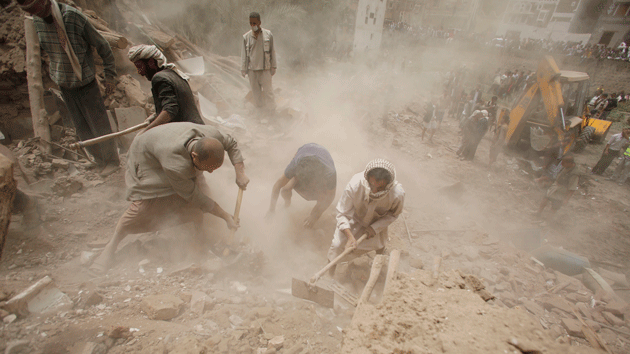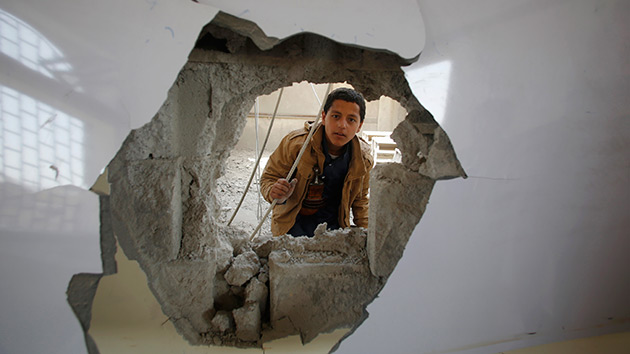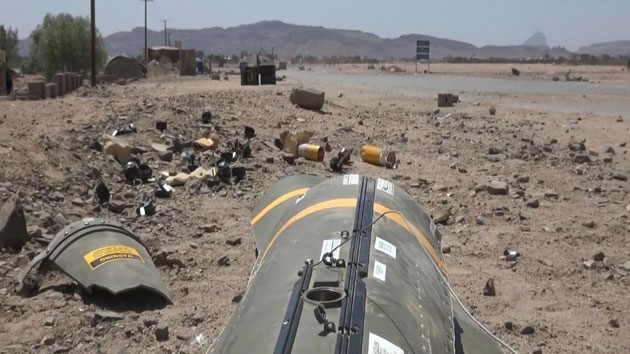
People search for survivors under the rubble of houses destroyed by Saudi airstrikes in Sanaa, Yemen, on June 12, 2015. Hani Mohammed/AP
Saudi Arabia is yet again adding to its trail of destruction in its war in Yemen, and its tactics are drawing condemnation from the United Nations. The Saudi’s latest actions include firing missiles on civilian buildings in the capital, Sanaa—striking a wedding hall, the Chamber of Commerce, and a center for the blind—as well as dropping US-made cluster bombs on at least two of Sanaa’s residential neighborhoods.
This morning, a spokesman for United Nations Secretary-General Ban Ki Moon condemned the latest strikes, and stated that the use of cluster munitions in civilian areas “may amount to a war crime.”
This is by no means the only time the US-backed, Saudi-led coalition has been called out for potentially violating the laws of war in Yemen and using US-made cluster munitions in civilian areas. (See our previous reporting on that here, here, here, and here.) Now, nine months into the conflict against Houthi rebels who ousted the Saudi-backed government of President Abdu Rabu Mansour Hadi last January, nearly 3,000 noncombatants have been killed, the majority of them from Saudi-led airstrikes. Despite increasing concern over civilian deaths, the United States continues to ink arms deals and provide intelligence and logistics support to the Saudi coalition.












